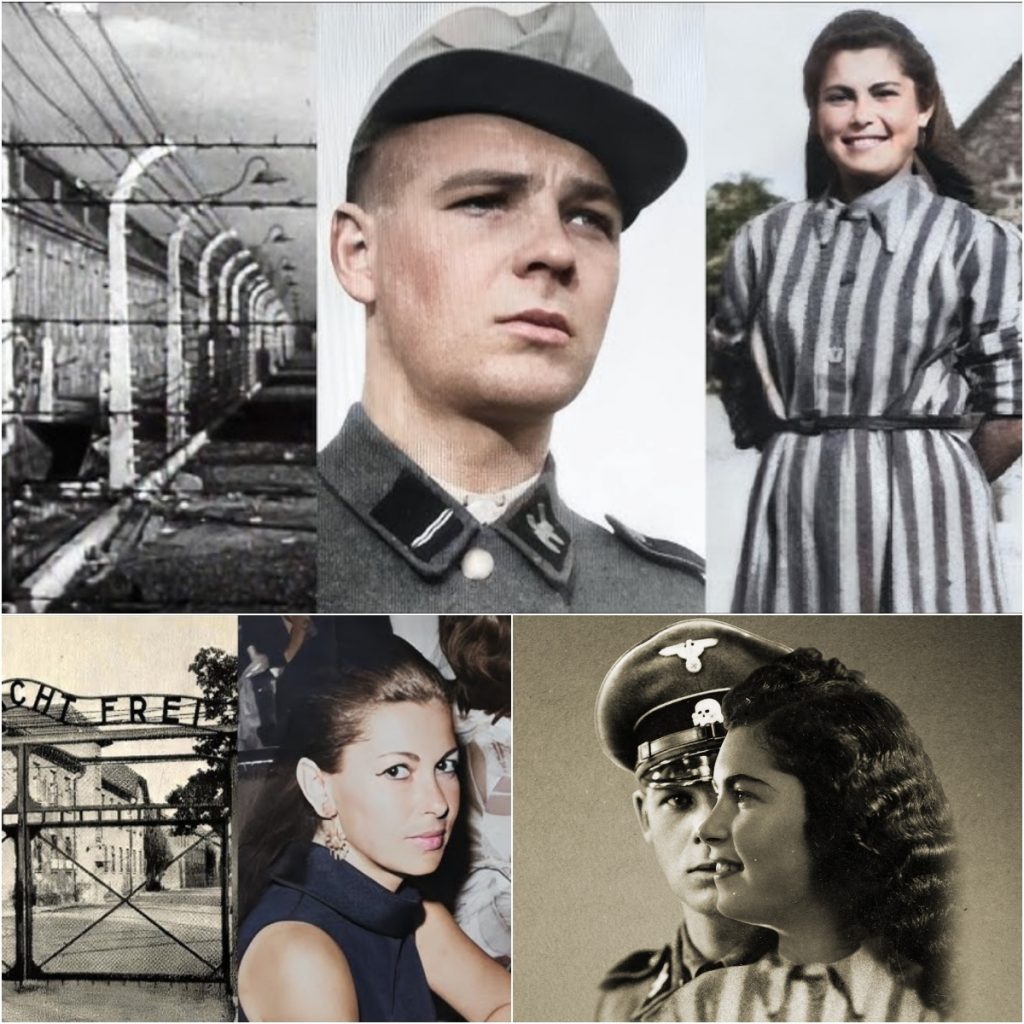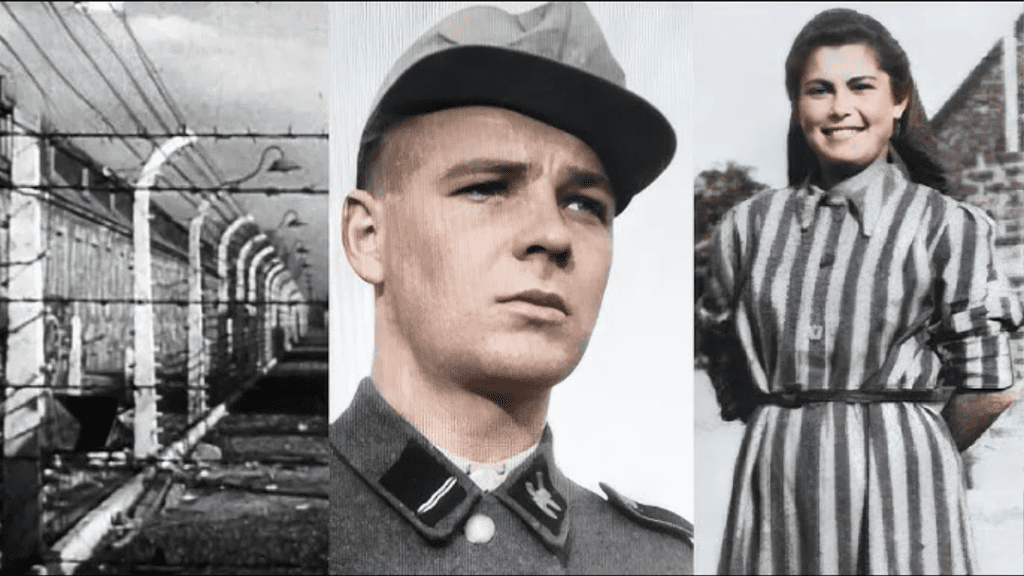A Nazi’s Forbidden Love: The Miraculous Survival of Helena Citrónová in Auschwitz
The tale of Helena Citrónová is one that transcends time and history, capturing the essence of human resilience in the face of unparalleled cruelty. This extraordinary story centers around a Jewish woman who, against all odds, survived the horrors of Auschwitz, thanks to an unexpected and forbidden bond with a Nazi guard. It’s a testament to the unpredictability of human connections, even in the most dire circumstances, and offers a glimpse into the complex emotional landscape of love, survival, and moral ambiguity during one of the darkest chapters of history.
Early Life and Family: The Seeds of Ambition and Talent
Helena Citrónová was born on August 26, 1922, in the town of Humenné, located in what was then Czechoslovakia. As a child, she was enveloped in a loving, culturally rich Jewish household. Her father, a cantor, fostered Helena’s deep love for music, while her natural affinity for dance ignited dreams of a brighter future. Her early years were marked by joy, ambition, and a strong sense of familial support.

Helena’s older brother, with his playful teasing, encouraged her to pursue her dreams, even joking about taking her to Prague to showcase her talents. These light-hearted moments filled her childhood with hope and the belief that a better life lay ahead. But this hopeful atmosphere would soon be shattered by the sweeping tides of war.
The Shadow of War: Family Displacement and Rising Perils
As the 1930s unfolded, Europe descended further into turmoil. The Citrón family, like so many others, found their lives upended by the rise of Nazi power. In 1934, Helena’s sister, Róžika, and her husband moved to Palestine in search of a better life. However, life in Palestine proved challenging, and by 1939, they returned to Czechoslovakia with their young daughter, unaware of the looming catastrophe that awaited them.
Despite warnings from the Jewish community in Palestine about the growing Nazi threat, they made the decision to return home. Tragically, by the time they realized the full extent of the danger, it was too late. Europe was in the grips of war, and the Jewish people found themselves facing unprecedented persecution under Nazi rule. This was the beginning of Helena’s nightmarish journey.
Video : The Jew who survived Auschwitz because a Nazi guard fell in love with her – Helena Citrónová
Auschwitz: A Place of Horror and an Unlikely Connection
In 1942, Helena’s world came crashing down when she was deported to Auschwitz, the infamous Nazi concentration camp. The camp was a place of unimaginable brutality, where thousands perished daily, and survival seemed like a distant dream. Yet, amidst the horrors of Auschwitz, a startling twist of fate occurred that would alter the course of Helena’s life.
A Nazi guard, stationed at the camp, found himself captivated by Helena. Against all odds, a complex and deeply forbidden bond began to form between them. This relationship, born out of moral ambiguity and survival instincts, became a lifeline for Helena.
While the full details of this bond remain shrouded in mystery, it serves as a poignant reminder of the ways in which human connections can emerge in even the most desolate of circumstances. The guard, whose motivations are difficult to understand, risked his own life to save Helena from the gas chambers, an act of bravery that defies conventional notions of morality. In a place where cruelty reigned, this unexpected relationship provided Helena with a glimmer of hope and a fighting chance for survival.

The Power of Resilience: A Legacy of Strength and Survival
Helena’s miraculous survival in Auschwitz was not the result of sheer luck. Her talents, her determination, and the extraordinary circumstances of her relationship with the Nazi guard all played a role in her ability to endure when so many others did not.
Her story serves as a profound reminder of the strength of the human spirit and the unpredictable ways in which life’s most significant connections can form. In a time when humanity seemed to be in its darkest hour, Helena’s story proves that even in the face of unimaginable cruelty, there can be moments of unexpected humanity.
The events surrounding Helena’s survival challenge us to reflect on the capacity for resilience in the most dire of circumstances. It also raises important questions about the nature of love and loyalty when faced with moral dilemmas and the cost of survival.
A Powerful Reminder: Preserving the Past and Honoring the Survivors
Helena Citrónová’s life is not only a testament to the resilience of the human spirit but also a powerful reminder of the importance of remembering the past. Her survival story, though exceptional, is a reflection of the countless other lives that were lost during the Holocaust. Sharing Helena’s story ensures that the atrocities of the Holocaust are never forgotten and that the strength of those who survived continues to inspire future generations.
Video : The Jew who Survived Auschwitz Because a N4ZI Guard fell in Love with Her – Helena Citrónová
As we reflect on Helena’s journey, we are reminded of the countless others who endured similar trials. Their stories of courage, survival, and strength must be passed down to future generations to ensure that the horrors of the past are never repeated. Helena’s life, marked by hardship and sacrifice, ultimately represents the enduring power of hope in the face of darkness.
Conclusion: A Tale of Love, Loss, and Unbreakable Resilience
Helena Citrónová’s story is one of profound human complexity. It is a tale of love born from the most unexpected places, a testament to resilience, and a reminder that the human spirit can survive even the darkest of times. Her survival in Auschwitz, aided by the forbidden and improbable relationship with a Nazi guard, challenges our understanding of morality, survival, and the bonds that can form amidst unimaginable cruelty.
This story speaks to the power of the human connection, the will to survive, and the strength to endure. It is a powerful legacy that we must continue to honor and share, ensuring that the lessons of the past are never forgotten. Helena’s story is a shining example of how, even in the darkest moments of history, there can still be a glimmer of light and hope.